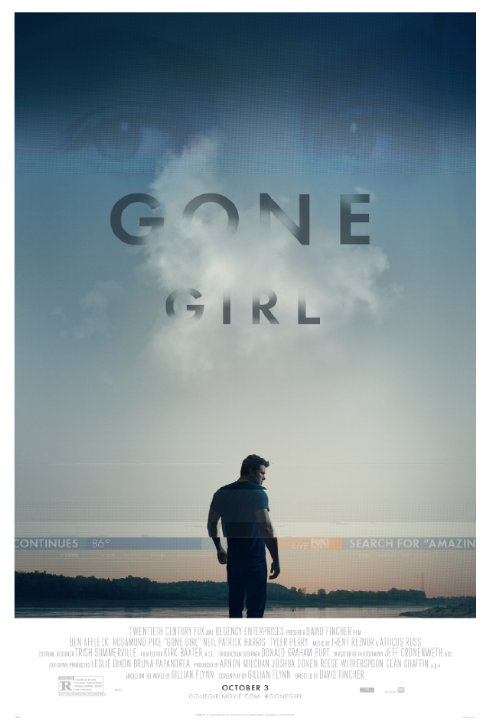A telling moment occurs between the two main characters, young married couple Nick (Ben Affleck) and Amy Dunne (Rosamund Pike), towards the end of David Fincher’s modern thriller “Gone Girl.”
''All we did was resent each other and cause each other pain,’’ Nick lashes out, to which Amy scathingly and chillingly replies, ''That’s marriage.”
On their fifth wedding anniversary, Amy disappears from the home that she and Nick share and the police launch an investigation. Several days after Amy’s disappearance, Nick finds himself at the center of public scrutiny. As the evidence stacks up against Nick, everyone — from the journalists camped outside his house each day, to the loved ones he trusts the most — begin to use caution with him.
Throughout this investigation the audience sees flashback scenes from Nick and Amy’s past, overlaid with voiceover from Amy’s diary entries spanning the past five years. These scenes take us through their oddly awkward meet-cute, to their sweet first kiss in a cloud of powdered sugar. Onto their financial struggles and move from Amy’s hometown of New York to Missouri, the Nick’s birthplace. This brilliantly executed voiceover work gives viewers the necessary background information to piece together the stages of a struggling marriage and allows us to hear Amy’s voice move from sugary sweetness to honeyed malice as she describes her devolving relationship with her husband.
Without giving away crucial spoilers, one can easily say that this expertly crafted crime drama will leave audiences shocked at the twists and turns. The real mystery is not what happened to Amy Dunne, but what havoc she and Nick have wreaked on each other, ranging from deceit, betrayal and manipulation. The scary part lies not in the dramatized, heightened versions of these characteristics that we see in films. It is the silent, everyday type that sneaks into our homes and pervades our thoughts and actions.
It manifests itself in the way we brush off the emotions of another person, citing simply that we feel “too tired” or “too busy.” In the passive aggressive way we avoid the confrontation and pretend like everything is just fine. How clueless we can become to the true nature of the person to whom we pledged our life. These acts build up and cause an internal explosion in the way we think and, in turn, cause our relationships to fall apart at the seams. At their core, Nick and Amy differ no more than the average couple in the ways that they sneak around their true feelings to grasp at their selfish desires. Director David Fincher raises awareness of this so as to bring the audience to realize this lifestyle is not one to be met with inevitability, but one to be opposed and worked against in order to achieve stronger marriages and interactions.
This smartly crafted screenplay written by the novel’s author Gillian Flynn brings all these topics, and more, to light. Likewise in the sharp cinematography and camera movements we get a crisp, suggestive thriller that feels a little more real than usual and perhaps that is what leaves audiences so frightfully entertained.







